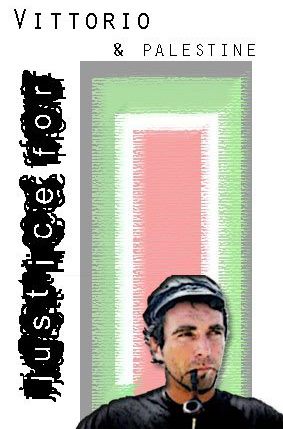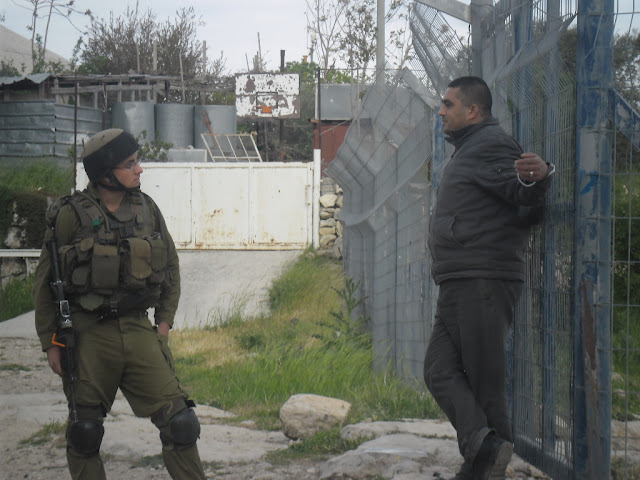Year: 2012
-
West Bank activists remember the life of ISM justice Activist Vittorio Arrigoni
by Sydney 16 April 2012 | International Solidarity Movement, West Bank Palestinians and International activists celebrated with the spirit of Vittorio Arrigoni this week across Palestine. Memorial events were held to mark the one year anniversary of his murder: two in Al-Khalil (Hebron) with members of the Hebron Defense Committee and Youth Against Settlements and…
-
Press Release from the Welcome to Palestine Campaign
by Mazin Qumsiyeh 16 April 2012 | Welcome to Palestine Campaign 2012 We did not have to show our 1500 visitors Israeli racism, arrogance, and human rights violations; the Israeli government showed them and also showed the whole world. Calling itself a democracy, this outlaw state denied the right of people from around the world to come visit…
-
Increasing Israeli army harassment and violence against activists in Hebron
by Paige 16 April 2012 | International Solidarity Movement, West Bank In the past weeks the Israeli army has increased harassment against both Palestinian and ISM activists in Hebron (Al Khalil), a deliberate targeting of those who oppose Israeli occupation and colonization. This targeting includes the arrest of six international activists, including five ISM volunteers,…


